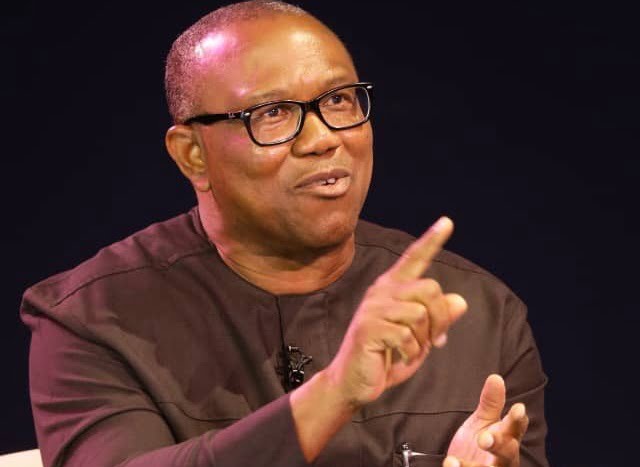Peter Obi may have relied on, or even instigated, the anti-social behaviour his supporters called Obi-dients put on show in the last campaign and election to gain traction. But as he focuses on a new quest to redeem his battered image and broaden his appeal in preparation for another challenge for the presidency in the future, the group and their antics have become a burden he is desperate to cast off.
In at least two statements this month, the former Anambra governor has offered a roundabout condemnation of the group for launching vicious attacks against respected personalities such as Pastor Enoch Adeboye, the General Overseer of the Redeemed Christian Church of God (RCCG).
Like other victims of Obi’s violent and unreasonable mob, the cleric’s offence was refusing to tow their line of wishing destruction on the country because their candidate wasn’t declared the winner. Instead, in a report that quickly gained national coverage, Pastor Adeboye was quoted to have wished the president-elect success with the support of God.
The common sense position, which reflected the thinking of the vast majority of Nigerians despite their partisan leaning, was seized upon by Obi-dients who wasted no time before insulting the cleric and accusing him of financial compromise.
Seeing how this could drive a wedge between him and the cleric’s impressive Christian community, Obi sought a way to rebuke his mob and was advised by his image makers to construct a straw man by making the allegation that some persons were ‘masquerading’ as Obi-dients to attack important personalities in the nation, and thus cause disaffection for the movement and its cult hero, himself.
However, this position was rejected by Obi-dients themselves, causing the spectacle of various leading figures of the movement speaking publicly against Obi for placing a target on their backs by declaring them impostors whose views and actions are not in alignment with the movement’s mission.
Some were in fact dismayed that the very same actions they were praised for during the campaign — including insults, intimidation, personal attacks, digital doxxing, and violence — had now become something to ostracize them for, in the principal’s new PR quest to purge his image.
In another instance where Obi tried to set himself apart from the erratic mob he inspired and led for months, the candidate visited respected literary figure Prof. Wole Soyinka who, at the time, was already declared a villain marked for reputational destruction by his supporters over his widely-endorsed description of their election denialism and visceral intolerance for dissent as ‘fascist’.
Despite knowing that Soyinka was already named an enemy that must be fought and brought low by his insurgents, Obi had only praises for the Nobel laureate, calling him “a father whom I hold in very high esteem for what he has achieved and stands for in the struggle for a better Nigeria.”
His visit and the following comments disappointed the Obi-dients who now feel a jarring sense of betrayal by their erstwhile battle commander. When asked what may have informed this strategic disavowal of his unruly followers, sources close to the candidate disclosed that he became convinced that their job is done. It is time for him to increase his support base, a goal that cannot be achieved by the qualities the Obi-dient mob is known for: intolerance, uncivil, and abuse.
“As an insurgent third-choice candidate with almost no chance of victory, you can of course hitch your wagon to a rebellious crowd willing to set fire to everything because you don’t have much choice anyway. But if you wish to transition to a politician of note, and not totally bury your chances with the lost election, there is a clear need to change tack and invest in the right crowd; people who can attract and keep, not just attack and insult,” one of the sources told this publication.
The thinking was said to have been accelerated by Obi’s damaging unmasking as a bigot and shady character due primarily to the leak of his conversation with Pastor David Oyedepo and arrest at Heathrow Airport, London. He is said to personally lament the two developments and fearful that they may ultimately mean that he has no political future in the country, if not effectively managed.
“Obi’s image has been tarnished, almost irreparably, by those two incidents. If he is to have a semblance of a political future, he must undertake a daunting image-rebuilding quest that must start with redefining what it means to be an Obi-dient. Right now, in the minds of many Nigerians, to be an Obi-dient is to be uncouth, intolerant, and generally just disrespectful. Nobody wants to put such people in a position of power over them, or even keep them as allies on anything,” a political marketing expert said when approached for comment on this report.
It is unclear whether Obi might succeed in this mission, but what is certain is that he is fast becoming a prisoner to the same mob he set loose on the nation in his desperate quest to become president. The situation brings to mind the famous quote of John Kennedy when he warned that those who foolishly ride the back of a tiger to power often end up inside.

